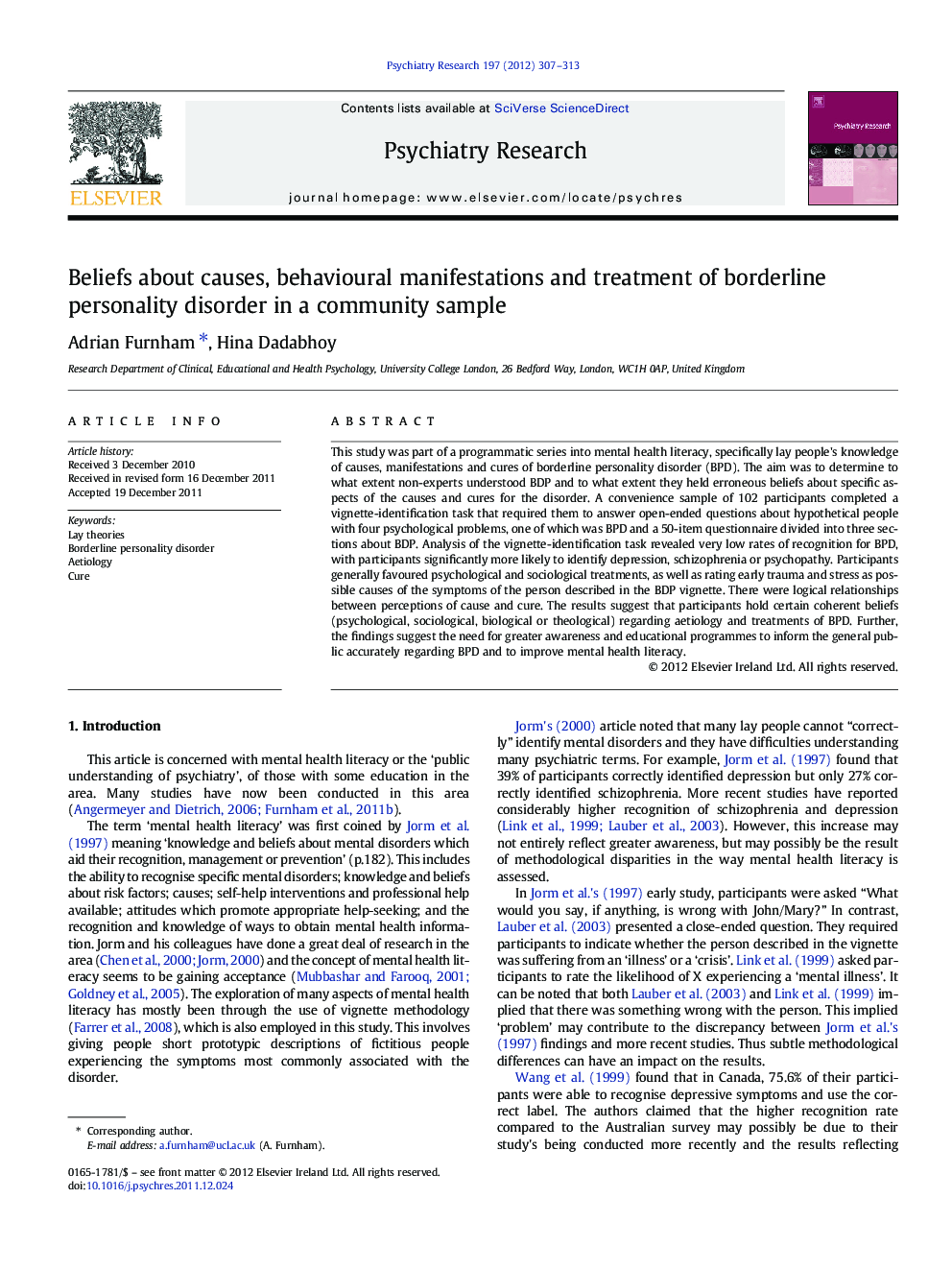| Article ID | Journal | Published Year | Pages | File Type |
|---|---|---|---|---|
| 10304451 | Psychiatry Research | 2012 | 7 Pages |
Abstract
This study was part of a programmatic series into mental health literacy, specifically lay people's knowledge of causes, manifestations and cures of borderline personality disorder (BPD). The aim was to determine to what extent non-experts understood BDP and to what extent they held erroneous beliefs about specific aspects of the causes and cures for the disorder. A convenience sample of 102 participants completed a vignette-identification task that required them to answer open-ended questions about hypothetical people with four psychological problems, one of which was BPD and a 50-item questionnaire divided into three sections about BDP. Analysis of the vignette-identification task revealed very low rates of recognition for BPD, with participants significantly more likely to identify depression, schizophrenia or psychopathy. Participants generally favoured psychological and sociological treatments, as well as rating early trauma and stress as possible causes of the symptoms of the person described in the BDP vignette. There were logical relationships between perceptions of cause and cure. The results suggest that participants hold certain coherent beliefs (psychological, sociological, biological or theological) regarding aetiology and treatments of BPD. Further, the findings suggest the need for greater awareness and educational programmes to inform the general public accurately regarding BPD and to improve mental health literacy.
Related Topics
Life Sciences
Neuroscience
Biological Psychiatry
Authors
Adrian Furnham, Hina Dadabhoy,
